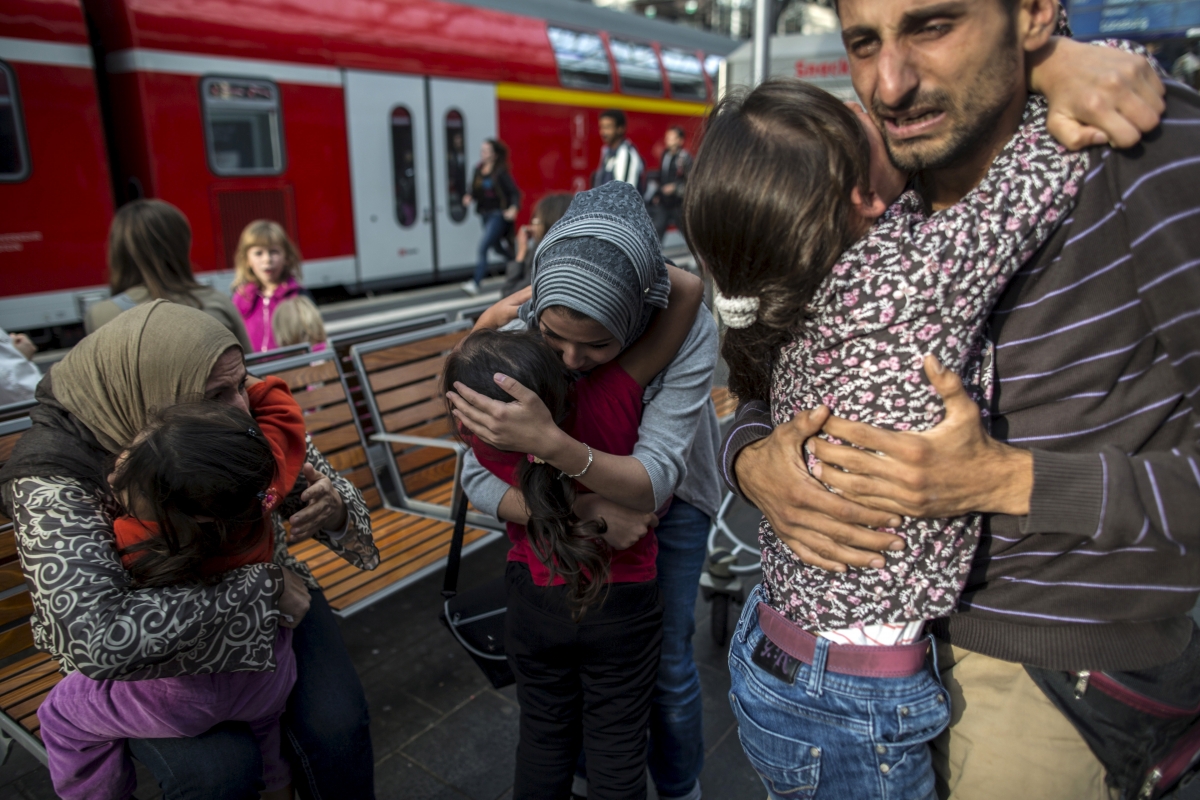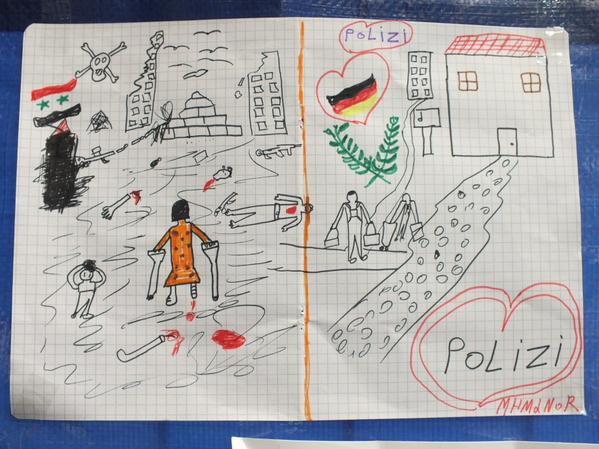Refugee crisis: Syrian girl's drawing gifted to German police shows grim reality of war



A drawing by a Syrian refugee girl in Germany, illustrating her life before and after her escape from the bloody civil war, has gone viral in the country after it was posted on Twitter by a German police officer.
The girl, whose identity is not known, drew the illustration in the Passau registration centre while waiting for her parents and gave it as a gift to the police officials. "The picture emerged from the thoughts in the mind of this girl," police spokesman Thomas Schweikl said.
A police official from the Bundespolizei in Bayern posted the picture on Twitter, from where it was retweeted 8,000 times with the hashtags #sprachlos (speechless) and #Fluechtlingskrise (refugee crisis).
Geschenk eines syrischen Kindes an die Bundespolizisten in Passau... #sprachlos #Fluechtlingskrise pic.twitter.com/YgWMjgJ1xM
— Bundespolizei BY (@bpol_by) September 24, 2015
The drawing shows with disarming simplicity the reasons behind the girl's family decision to flee Syria. On the left side, a girl on crutches stands surrounded by severed limbs, skulls, bleeding people, crumbling buildings, military planes and weapons. A skull and crossbones is depicted over the Syrian flag. On the right, a family carrying luggage is walking along a pebbled road towards a German house with tiled roof. The German flag is enclosed in a red heart, as well as the word Police in German.
"It is possible that the child experienced the events shown in the picture, or she wouldn't have drawn them otherwise," psychologist and trauma researcher Tatjana Kolassa told DPA news agency.
Germany is a prime destination for migrants, and it expects at least 800,000 to arrive this year. Half of the refugees who manage to reach the country are suffering from psychological illness such as depression or post-traumatic stress disorder (PTSD), according to a study released by the German chamber of psychotherapists (BPtK).
A statement on the organisation's website said that 40% of the refugees already had suicidal thoughts or "have even attempted to kill themselves". One fifth of refugee children also suffer from PTSD; they are 15 times more likely than German children to suffer from psychological diseases.
"The arriving refugees not only need shelter and food, but medical treatment," the chamber's president Dietrich Munz said. "But almost no mentally-ill refugee receives an adequate medical support."
Only 4% of refugees are receiving help in refugee shelters, he said. Munz also called on the government to change rules to regulate psychological treatment in refugee shelters. Among the refugee children, 40% had witnessed violence and 26% had to watch family members being attacked. The professional body said that many refugees suffer from heightened noise sensitivity, jumpiness, insomnia and inability to cope with confined or crowded spaces.
© Copyright IBTimes 2024. All rights reserved.






